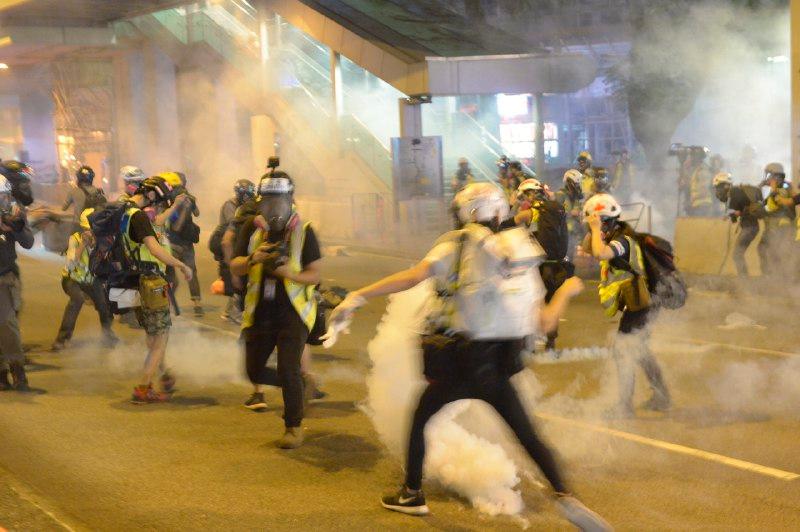A journalist who has been reporting at the front lines of Hong Kong’s anti-government protests revealed on Facebook that he was diagnosed with chloracne a few days ago—a rare skin eruption of blackheads, cysts and nodules, which has been linked directly to dioxin exposure. Hong Kong’s medical experts believe the dioxin exposure came from the use of tear gas by Hong Kong police.
Another internet user also exposed on social media that many police officers had contracted chloracne as well, but senior police officers forbade them to tell others, for fear that it would scare other policemen.





